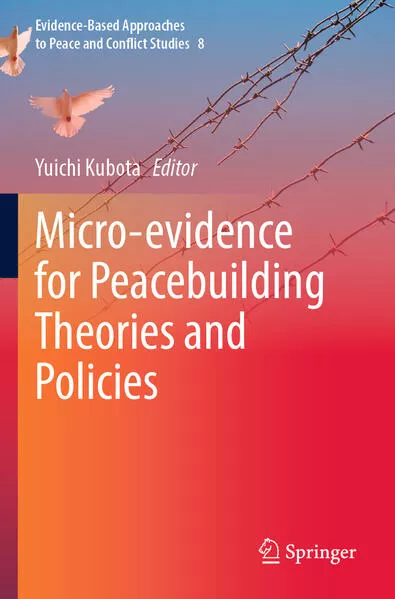
- Publikationen ca: 3
- Fragen & Antworten
Yuichi Kubota
Yuichi Kubota is Associate Professor at Department of Political Science and Economics, College of Law, Nihon University in Tokyo. His research interests include civil conflict, peacebuilding, public opinion, and political economy of development in Asia. He is the author of Armed Groups in Cambodian Civil War: Territorial Control, Rivalry, and Recruitment (Palgrave Macmillan, 2013). He has published articles on civil-military relations in armed conflict, patterns of political violence, and sociopolitical attitude of civilians in post-conflict societies in journals such as Asian Survey, International Studies Review, Journal of Peace Research, Security Studies, World Development. He received his Ph.D. in political science from University at Albany (State University of New York).
Micro-evidence for Peacebuilding Theories and Policies
Relying on micro-evidence on the repercussions of civil conflicts, this edited book explores theories and policies of post-conflict peacebuilding. Reconsidering existing knowledge on the civil conflict and peacebuilding processes in particular, it empirically presents the relationships between conflict dynamics and citizens’ norms, values, and preferences in the post-conflict context.
Micro-evidence for Peacebuilding Theories and Policies
Relying on micro-evidence on the repercussions of civil conflicts, this edited book explores theories and policies of post-conflict peacebuilding. Reconsidering existing knowledge on the civil conflict and peacebuilding processes in particular, it empirically presents the relationships between conflict dynamics and citizens’ norms, values, and preferences in the post-conflict context.
Micro-evidence for Peacebuilding Theories and Policies
Relying on micro-evidence on the repercussions of civil conflicts, this edited book explores theories and policies of post-conflict peacebuilding. Reconsidering existing knowledge on the civil conflict and peacebuilding processes in particular, it empirically presents the relationships between conflict dynamics and citizens’ norms, values, and preferences in the post-conflict context.


